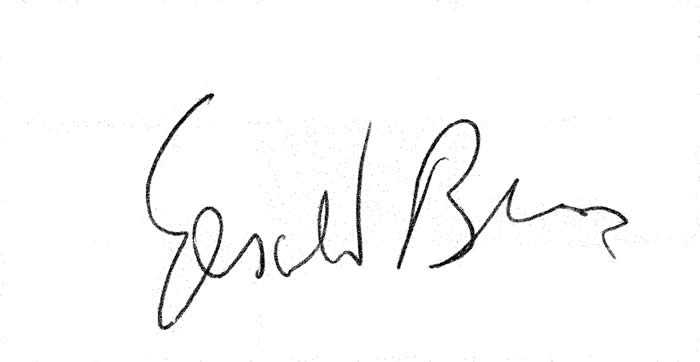
Why not Stein's Mrs. Reynolds (as if Mrs. Dalloway meets The Making of Americans)?
There you have a triumph of repeats, how one comes to see political celebrity (Hitler)
as one's neighbors, gradually, in a time of wartime scarcity, pointless conversations
about clouds slightly tilted by anxiety, a shift of tone, Rosencrantz and Guildenstern
in Belley, have the Germans come, illicit legend under prattle, so adult
to think of dogs and food in a time affecting all, repetition its insistence.
Concerns (it is their function) press till one is irritated at the customer
beguiled like a wasp in plum jam, unfossilizable. Books are celebritous
among folk who don't read beyond -- say -- 1950, not my care, not my care.
The secret public listens to an unknown agenda, hearkens to it, they say, Homer
Simpson being a buffoon, the children wily, sophisticated, replacing the Coyote flattened
by safes, reduced to atoms, little separate gelignite clouds, in the desert. Like Hamlet I'm
below the level of words, swim through the eyeholes of skulls, think fishy thoughts,
read Ellul on Propaganda, saturated as if by ether, the medium Henry Slade producing
writing on a slate, Henry A. Slade, Dr. Slade, his hair fine as Gosse's, a troubled face
dark under fine eyes. E. Ray Lankester, Dr. Ray, got him a jail term in London
but he skipped on the appeal, died broken in Michigan. What a life that'd've been.
Wouldn't you be tempted, with your boxes with holes for spirits to breathe ether, extrude
ectoplasm shaped like fingers, that wiggles if prodded?
Goblins, most of them. You see a thing with whiskers tacking posters on phone poles
another trick name to go see, as if the title were the poem. I know a wilding to whom birds
and beasts come, who enters rooms as if just come from a forest -- even the moulded
rocks with slots for door keys have a little of this, rock musical Linnaean band name
the paper often tinted, some stark black and white, staples like bark on creosote.
Angels are puppies. They appear like an uneaten Twinky's twin-pack on a dashboard.
Stein changed Adolf to Angel. As annunciators they are not even bearers of words. In
the twenties dead relatives spoke to you by writing on blackboard slates. In dark rooms.
Panniers were moulded on ceramic donkeys. Openers you screwed to the wall said Coke.
These are not just things you might learn, but were unintelligible at the time. Spirits
are slaves to their own contemporanea (in this way unlike poems).
The alternating warm and cold waves these February nights, like ribbed beaches.
We saw a little mesa, rain-packed sand eroded to make a sharp edge. Catastrophe
theory need not apply. Smooth clay makes bear shapes around a pot, one on the lid,
mouth, its mouth, slightly agape. Its effect in polished blackware is as of bears,
or a dream of bears, on a real pot, shared substance not among their differentia,
but light and shade. Dried cow chips packed around draw oxygen.
It is probable that mythic things are intrinsically narrative. We would be perfectly happy
to get a message from Gertrude Stein in a dark room on a slate if she were our aunt, and
yet we would not be happy, the scratching on the slate, the eeriness, without the story, her
"coming back" to write about the Summerland, that Alice added lemon rind to Drambuie and whipped cream,
unlike her but we like it that she's left us texts embedded in a context, on a stack of slates
like the stack of gradeschool notebooks with pictures on she wrote in, volcano or flamingo a pleasure
before the war, as they say it was to Rimbaud. A "heroic period" of modernism means this,
that its practitioners are mythic in our minds, Hopkins in a tee-shirt attacking a canvas a picture
in Vogue (which has a full-page ad for a perfume called Pôeme), indistinguishable from Picasso.
So, we tell their stories leaving out everything, to dwell with our dwelling with the images of selves.
Perhaps the Ugaritic texts for which Olson spent his bucks were this, messages on slates, cuneiform,
that he could say were written in a sense for him, stories told to Charles junior by people with no,
absolutely no, historical sense, the desert island in his mind reduced for Stein to an image
on her copybook, something collapsed to lemony and litho, become a "notion" on which one might act,
but only tangentially a subject. The story, anyway, has gone away, left at best a footprint or
shards of being, faces of the Demoiselles. Picasso said always use a brush too large or too small.
Copyright Gerald Burns 1995-1997